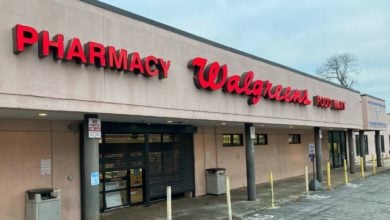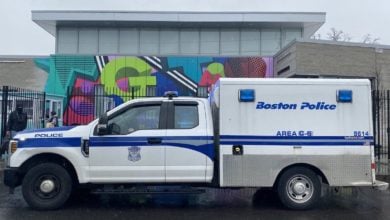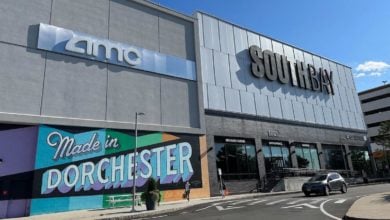On July 22, the Green Justice Coalition led a rally to demand “fair fares” for the Massachusetts Bay Transportation Authority. The MBTA has consistently failed the residents of Boston and its surrounding towns, as demonstrated by two recent catastrophic train derailments in Boston, a bus fire in Cambridge and a commuter rail train to Providence catching fire on July 25. Despite increasingly unreliable service, the MBTA raised rider fares this July for the fourth time since 2012.
At 11:00am, members of various progressive groups — including the Chinese Progressive Association, GreenRoots, Neighbor to Neighbor, T Riders Union and Community Labor United — staged a rally outside the State Transportation Building in advance of the MBTA Fiscal and Management Control Board’s scheduled public meeting. Several community members and organizers testified about the necessity of a functioning public transit system for their daily needs, and made demands for financial accessibility and improved service. In particular, the coalition called for the implementation of a reduced fare option for riders whose yearly wages are less than three times the federal poverty line ($77,250 for a family of four in 2019). A recent MIT study found that when given access to a 50 percent reduced fare rate CharlieCard, low-income riders took 30 percent more trips overall, and significantly more trips to healthcare and social services.
In both the rally and subsequent board meeting, it was made clear how burdensome the increasing cost of transit is in the lives of working class people in our community. Unaffordable public transit forces the poorest people to spend the highest proportion of their income on transportation, preventing them from being able to access work opportunities, community events and even their own friends and family. GreenRoots organizer Noemy Rodriguez was initially unable to speak at the rally, as service issues caused her commute from East Boston to take an hour and a half. In public testimony, she referred to her daily experience: “Now you can see the time it takes to get to work, to a medical appointment or to any other appointment. We need better service.”
The rally and these testimonies were supported by a passionate group of high school students. As predominantly Black and Brown young people from working class backgrounds, they demonstrated how important the MBTA is to their lives. The seriousness of their demands was amplified by chants of “If we don’t get it, shut it down,” “Down with the fares,” and “We got the power ‘cause we are the revolution.” The president of the Boston Student Advisory Council, 18-year-old Stanley Aneke, stated emphatically “Boston has a lot of lower-income communities and young adults that are constantly impacted by [increasing fares], and this catastrophe needs to end.”
Under the current neoliberal era of capitalism, public investment that would benefit the great majority of people is de-prioritized in favor of private investments that can generate superprofits for the ultra-rich. The ruling class is unwilling to invest in local and interstate infrastructure — excluding the New York City region, national transit ridership declined by 7 percent from 2006 to 2016. Too stubborn to permit even a petty increase in taxation of the wealthiest (who contribute the lowest proportion of their income), Massachusetts has instead chosen to punish the most marginalized with fare hikes. By contrast, both Democrats and Republicans agree that when it comes to the military no amount is too much, with half of federal tax dollars applied to wars, weapons development, and state-run terrorism. Meanwhile, private rideshare services continue to rapidly grow in Massachusetts, further exacerbating congestion, carbon emissions, and financial barriers to transportation.
This chronic lack of public investment is starting to collapse in on itself, and the working class is left with outdated infrastructure that cannot keep up with growing urban populations. As always, the poorest among us are the first to be hurt by gentrification and abysmal public transit. Conditions under the current system are only becoming more intolerable, and community groups and workers continue to organize and directly demand solutions.





